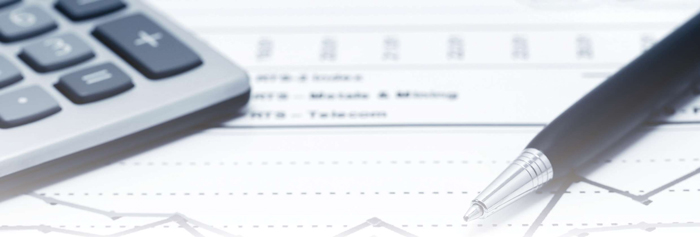February 2019

In the August 2018 issue of Pula Imvula we discussed the question ‘Do I use foreign capital or not’. In this article the question whether the use of foreign capital will improve the rate of return on your own capital, is addressed.
To refresh our memories: The money you will need to set up a farming business and to maintain your business is referred to as capital. And, there are basically two sources of capital. Firstly, own capital – the term used for the capital or money that you provide from your own pocket (perhaps money you have saved for this purpose). Secondly, you could borrow money from someone else, known as foreign capital.
In the August 2018 article we concluded, to use foreign capital is a burden with some risks involved, therefore it requires careful consideration. We have also referred extensively to the use of a cash-flow budget to determine whether you will be able to re-pay the loan (the foreign capital).
However, that is but one part of the question to use or not to use foreign capital. The other part of the question is, will it be worthwhile to use foreign capital? To obtain the answer to this question you need financial information obtained from the balance sheet (statement of financial position) and income statement (statement of financial performance) of your business. Be aware of the fact, that without the correct information available you cannot provide the correct answer to this question.
To determine whether it is worthwhile to borrow foreign capital, one needs to determine whether there is an increase on the rate of return of your own capital. Explained in simple terms, rate of return refers to the amount of money made by your investment expressed in percentage – should you invest, say for example R100 000 with a bank in a savings account for a period of one year, and at the end of the year you receive R105 000. The rate of return on your investment is then 5% (R5 000 expressed as a percentage of R100 000 = 5%).
Unfortunately, the fact is that for farming in South Africa, the rate of return or then the money earned on your investment is rather low – on average some 6% - 7% per annum, especially for the more extensive types of farming. A side-line remark – this poses the question – is it worthwhile to farm? You could possibly earn more by investing your money with a financial investment institution and earn more than 6% - 7% without any effort or risk.
Therefore, as a farmer, you should consider the question whether you should use foreign capital from the point of view, will the use of foreign capital improve the rate of return on my own capital?
Let’s consider a simple example. You have an established small farm and you have invested R800 000 in this business. This figure is available from a statement of financial position or then balance sheet (see a previous article for an example of this statement) under owner’s equity. The farm profit as indicated in the income statement is say R80 000, then the rate of return on own capital is 10%. You wish to expand your business to make more money, by adding a small broiler production unit. You however consider borrowing the funds, R200 000, for this purpose at an interest rate of 12%. You have calculated that your farm profit could increase to R90 000, that is after the interest of R24 000 is payed. The rate of return on own capital will then be 11,25% (R90 000 of R800 000 own capital) which is then a so-called positive leverage.
Vice versa, you can only borrow the R200 000 at an interest of 15% and the farm profit will be R75 000 after and because of the interest of R30 000 to be paid. Then the rate of return on own capital will be 9,375%. This figure is lower than the original 10% rate of return on own capital and is a negative leverage. It is thus, on paper, not worthwhile to borrow money to progress with the broiler production unit. The decision to borrow, remains yours. But, remember once you have repaid the loan the position will change positively.
The two factors influencing the leverage is the additional profit that the new enterprise will make and the interest rate you will pay on the loan.
You might feel that this is all a bit theoretical. From a practical point of view, it remains the safer option not to use foreign capital. Or, as we have stated in a previous article ‘the best debt is cash’. Should you however decide that you must borrow money, get all the information that is needed and consider the interest charged on the loan. Negotiate for a lower interest rate.
We also acknowledge the fact that sometimes you will be forced to borrow money to keep your business running, regardless all negatives attached to borrowed capital – such as a production loan or after a drought but borrow responsibly.
Article submitted by Marius Greyling, Pula Imvula contributor. For more information, send an email to mariusg@mcgacc.co.za.
Publication: February 2019
Section: Pula/Imvula